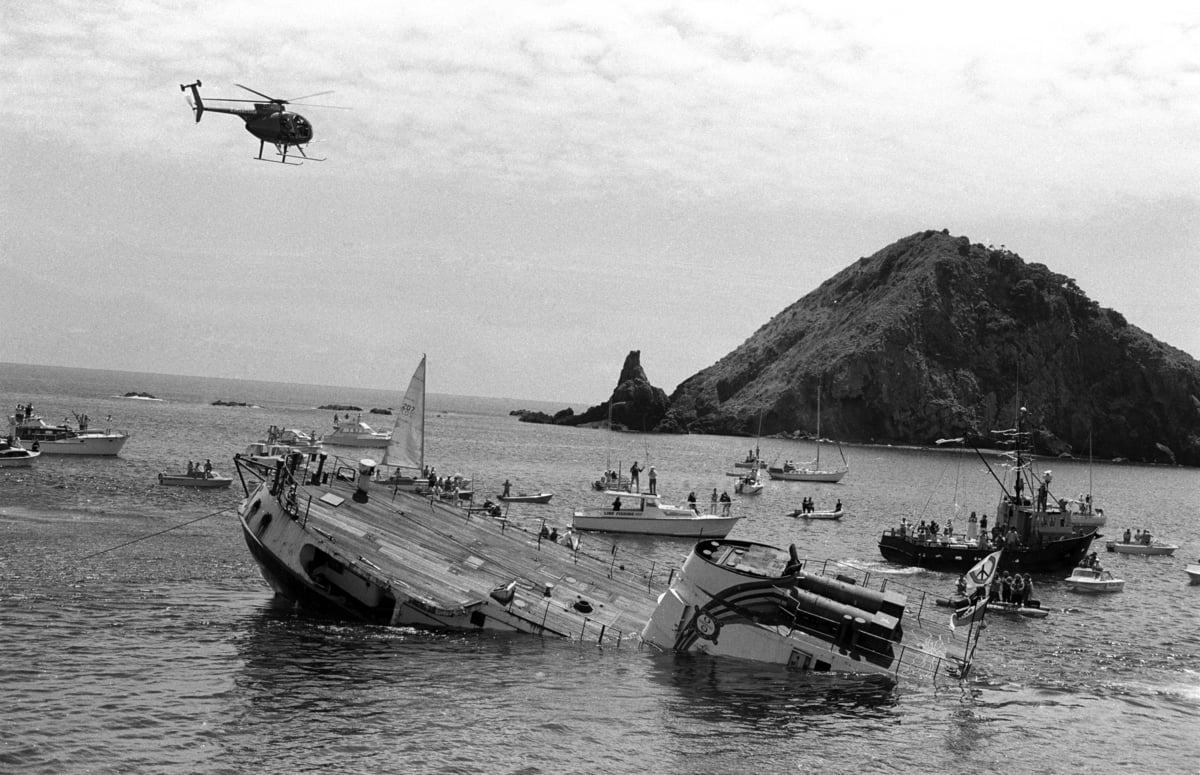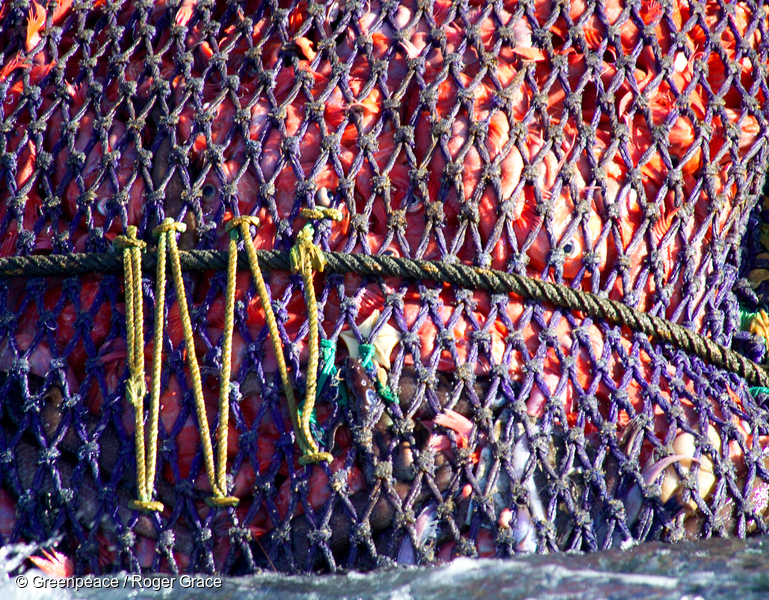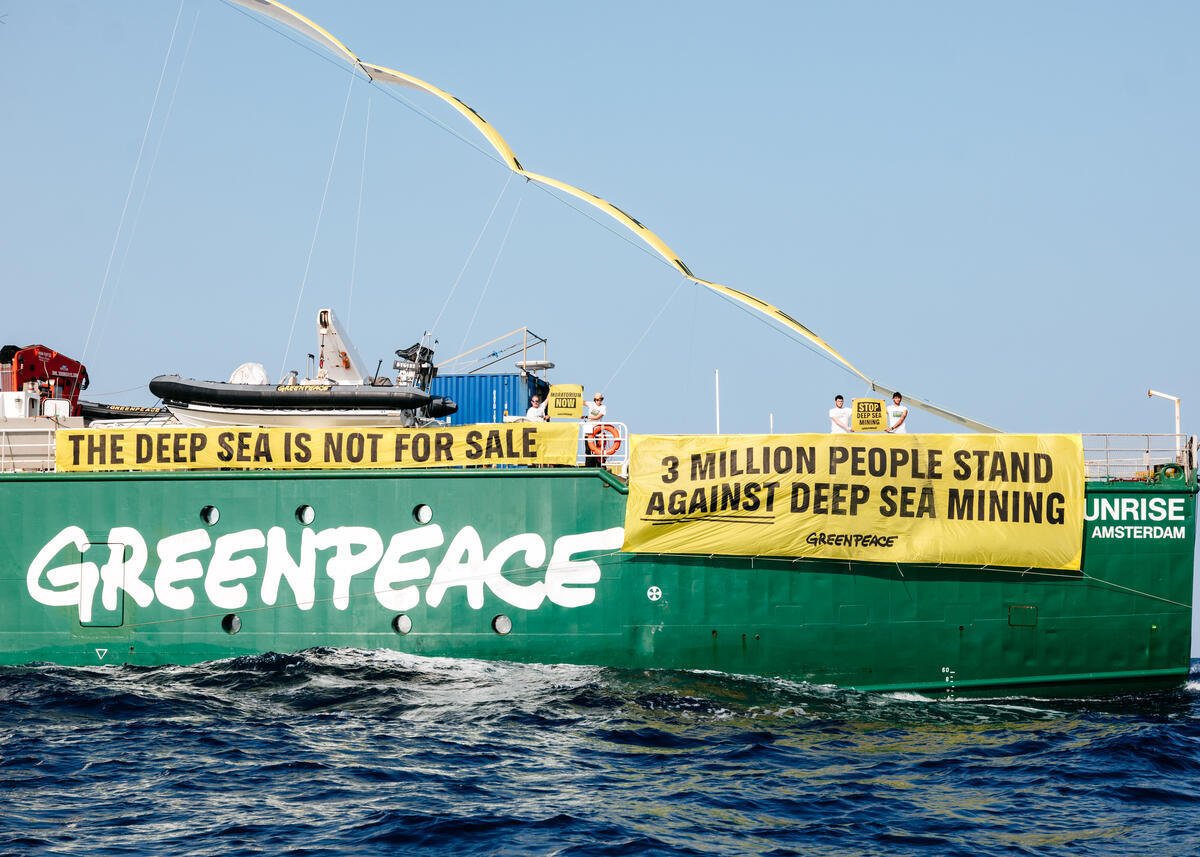In just a few days, another crucial International Seabed Authority (ISA) meeting will start. From July 15th to August 2nd, world leaders will discuss the future of the deep ocean.
Each ISA meeting comes with its share of challenges. This year, a new Secretary General will be elected so there is a chance that the ISA’s member states will elect someone who does not support the industry’s ambitions as much as the current Secretary General, Michael Lodge. Moreover, world leaders will pick up things where they left them in March 2024 and continue to discuss deep sea mining rules, amidst divergent points of view and a huge amount of remaining work. They should also discuss the possibility of a moratorium on deep sea mining for the very first time. This is all happening as we see a growing public resistance. Here are 5 facts showing that the momentum is unstoppable.
1. 27 countries call for a halt on deep sea mining
In June, Greece and Peru joined calls for a moratorium on deep sea mining, which brings the number of countries calling for a halt to 27. The Greek position comes as part of a new declaration between Greece and France, signaling the two governments’ joint effort to build an alliance for higher ambition on ocean protection. As for Peru, the country is standing for a moratorium.
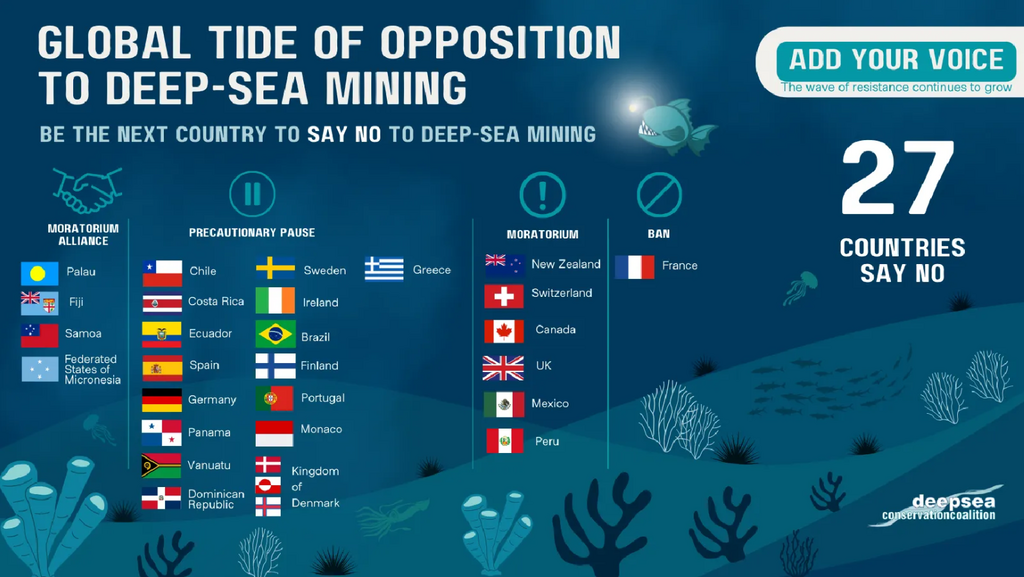
2. The US democrats call on President Joe Biden for a moratorium on deep sea mining
In early June, in a joint declaration, the French President Emmanuel Macron and Joe Biden committed to take a precautionary approach to deep sea mining. Although the United States has an observer status at the International Seabed Authority, its position on deep sea mining is crucial.
The Metals Company has applied for a US government grant to build a pilot deep-sea metals processing facility in Texas through the Department of Defense. Not only an approval on this would be a worrying support to this destructive industry, but it also ultimately shows that a green transition has always been an excuse for this industry: batteries or weapons, all deep sea mining advocates are after is profit. On June 28th, the US democrats called on President Joe Biden for a clear position supporting a moratorium on deep sea mining.
Additionally, the Hawaiian Indigenous population have been raising their concerns through the voice of Solomon Pili Kahoʻohalahala, known as Uncle Sol, a native Hawaiian Elder who has attended ISA meetings as a member of the Greenpeace International delegation. The livelihood, history and traditions of the Indigenous peoples from Hawaii are closely linked to the ocean and Hawaii would be on the frontline of the impacts if deep sea mining should start. Following the call from the US democrats, the Hawaiian State decided to ban seabed mining ahead of the ISA meeting this July.
Still in the United States, deep sea mining was featured in John Oliver’s prime time TV show LastWeekTonight and you can trust us when we say that you are gonna love it!
3. United Nations bodies against deep sea mining
For the first time, United Nations Secretary General, António Guterres, warned against deep sea mining. He said: “Unsustainable coastal development, overfishing, deep-sea mining, unchecked pollution and plastic waste are wreaking havoc on marine ecosystems across the globe”.
In addition to this, strong criticism of Norway’s plans to start deep sea mining in the Arctic continues to grow. The head of the UN’s biodiversity science panel (IPBES), Anne Larigauderie, criticized the opening for deep sea mining, stating that it should be avoided. She argued that we are lacking knowledge on the impacts of deep sea mining and the precautionary principle should be applied.
4. Greenpeace Netherlands and Switzerland against Allseas
Allseas is a Dutch company playing a leading role in the development of deep sea mining machines and ships. That’s why activists from Greenpeace Netherlands and Greenpeace Switzerland took action. In the Netherlands, they changed the meter-high Allseas logo on the roof of their office in Delft to ‘Killseas‘ and hung a banner saying ‘Stop Deep Sea Mining: Protect the Wonders of the Deep Sea.’ In Switzerland, where Allseas also have an office, they went to the headquarters in Châtel-Saint-Denis and distributed leaflets to employees.
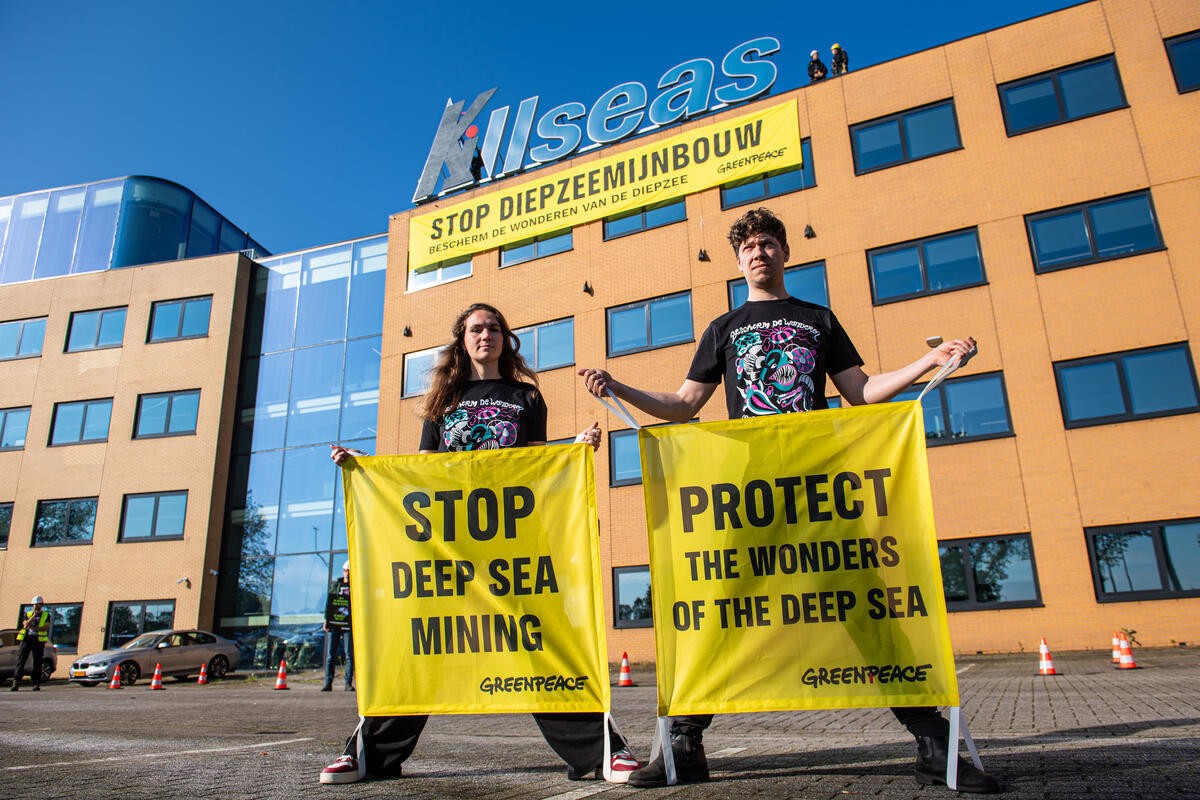
5. 2.8 million signatures to stop deep sea mining
There are now more than 2.8 million signatures from around the world on the petition asking world leaders to stop deep sea mining before it starts. As The Metals Company plans to apply this year to mine the deep ocean, governments need to hear this call from the people. On July 6th, in over 60 cities, people took part in a global day of action and rose up to send a message to political leaders before the International Seabed Authority meeting starts.
So there is hope!
But here in Aotearoa, with the Fast Track Bill, we can see a renewed effort to begin seabed mining here that, if approved, could see New Zealand being the first place in the world to allow commercial seabed mining.
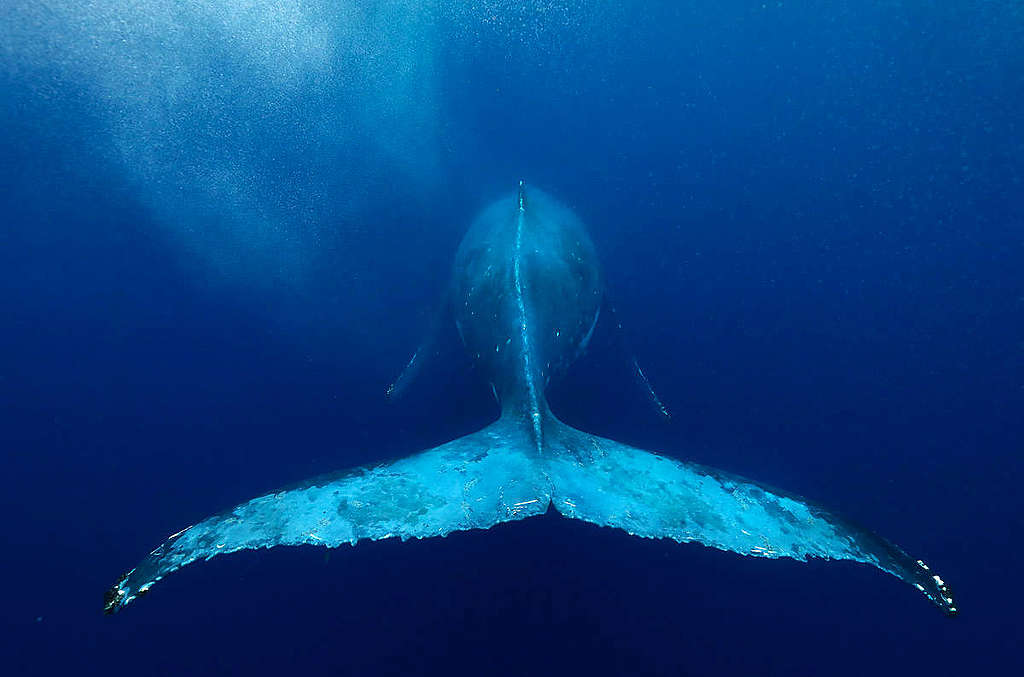
Seabed mining is a new threat to the oceans. Now is our chance to prevent the destruction before it’s too late.
Add my name
